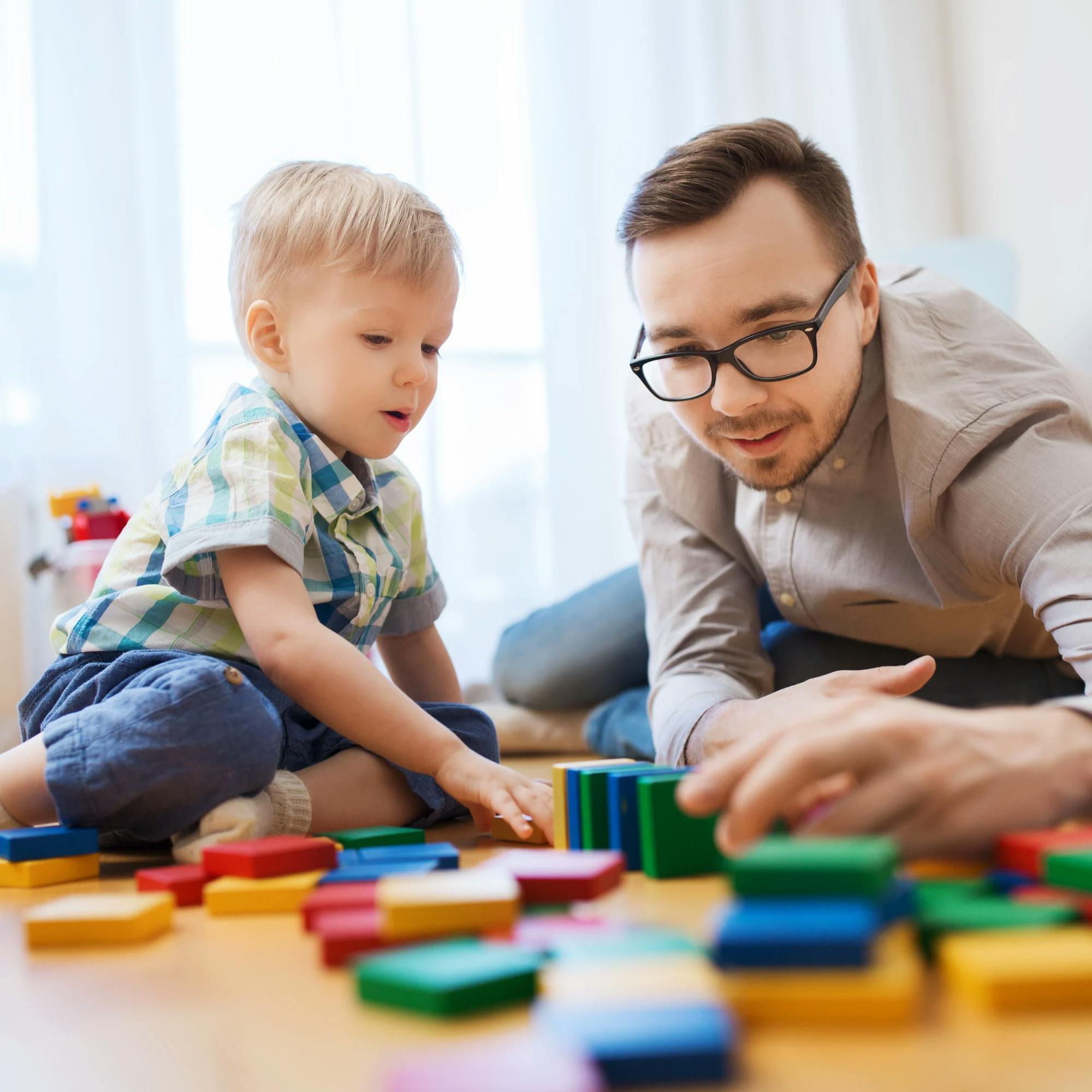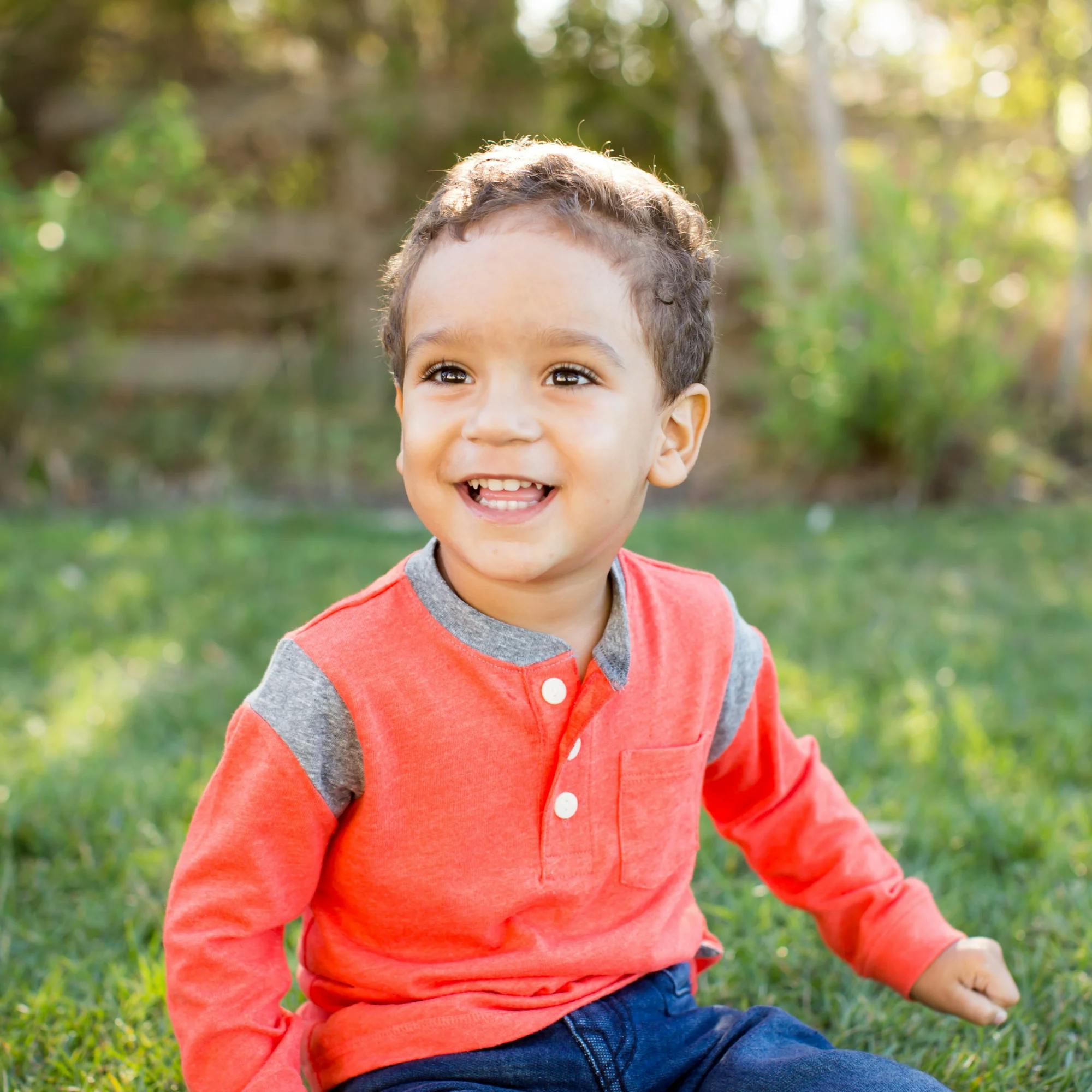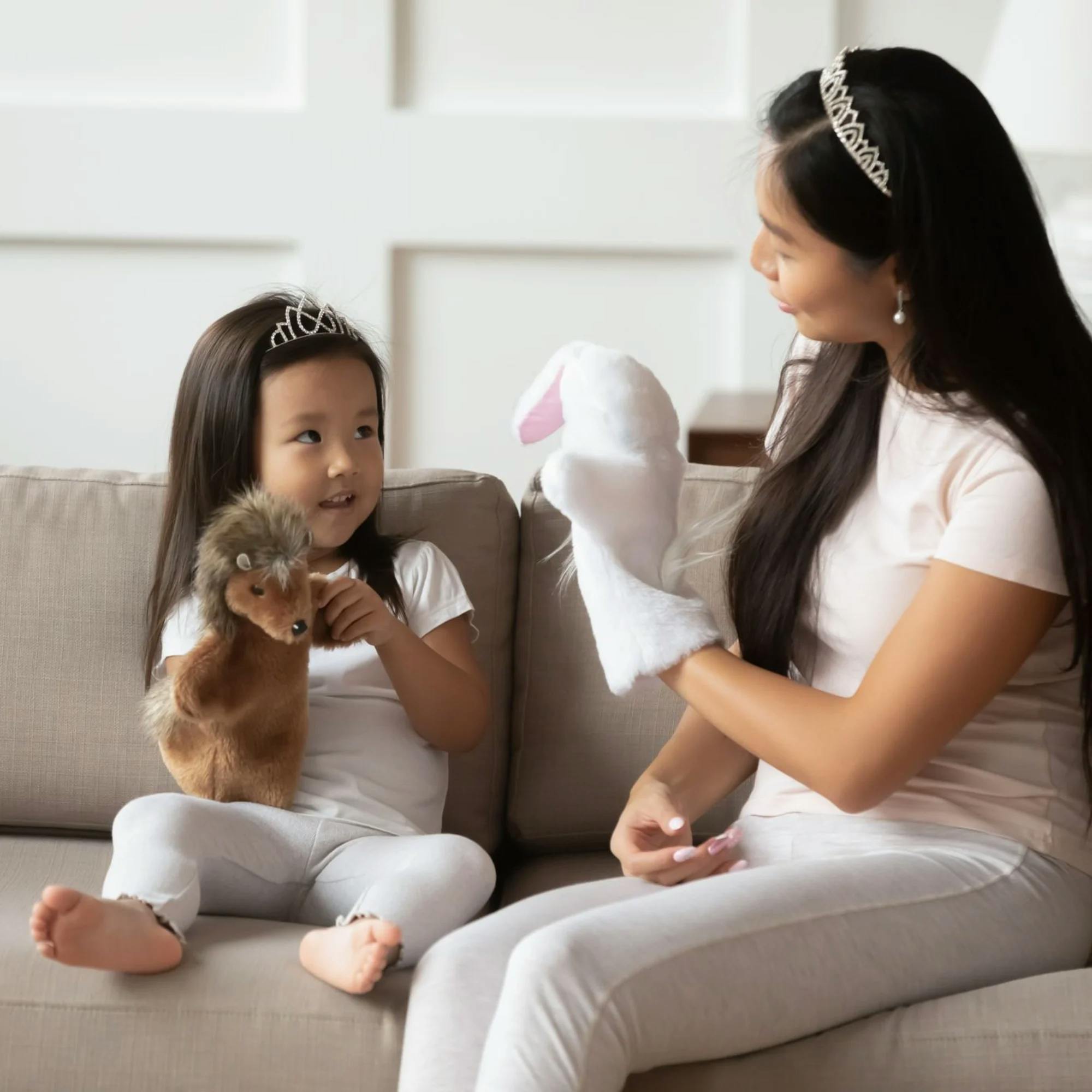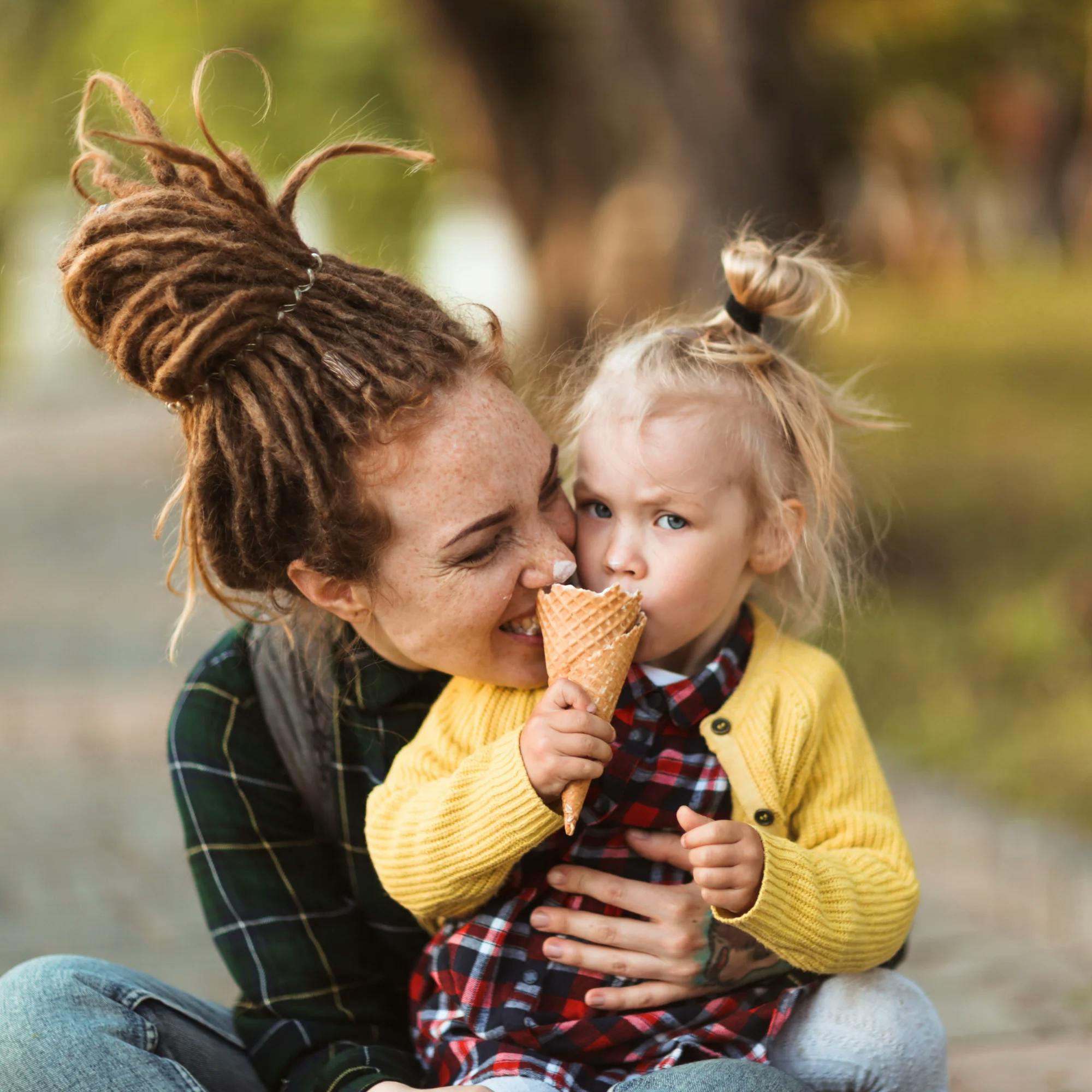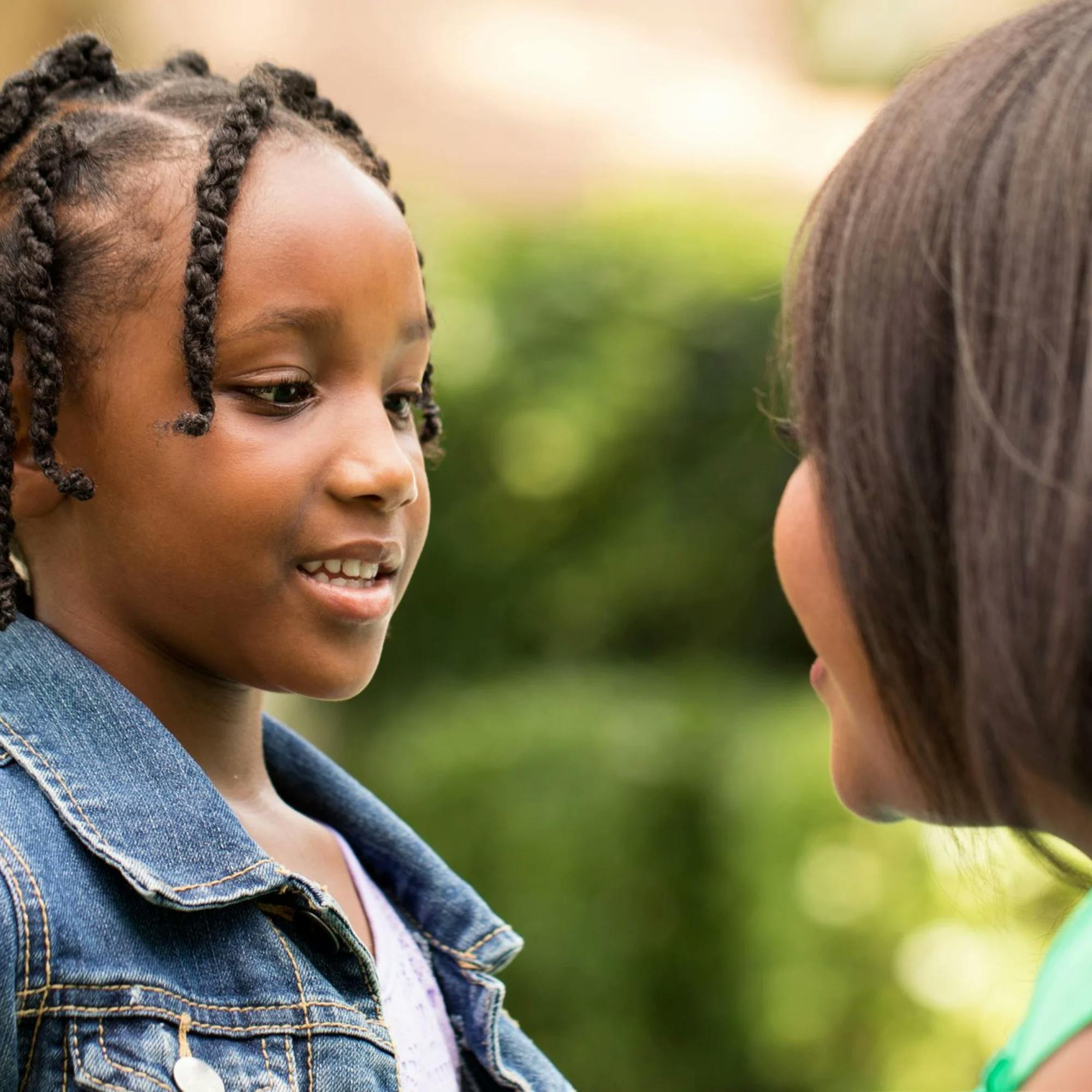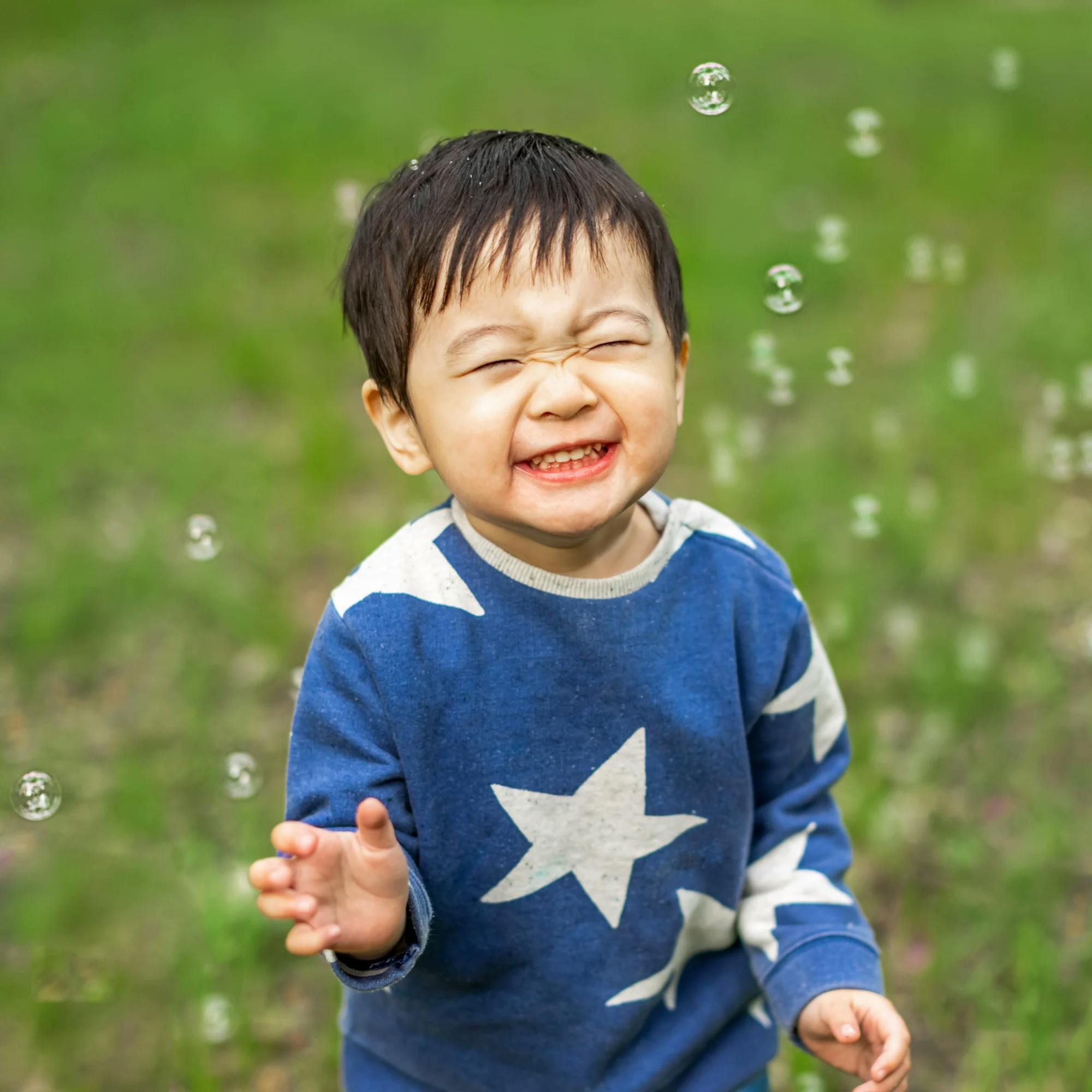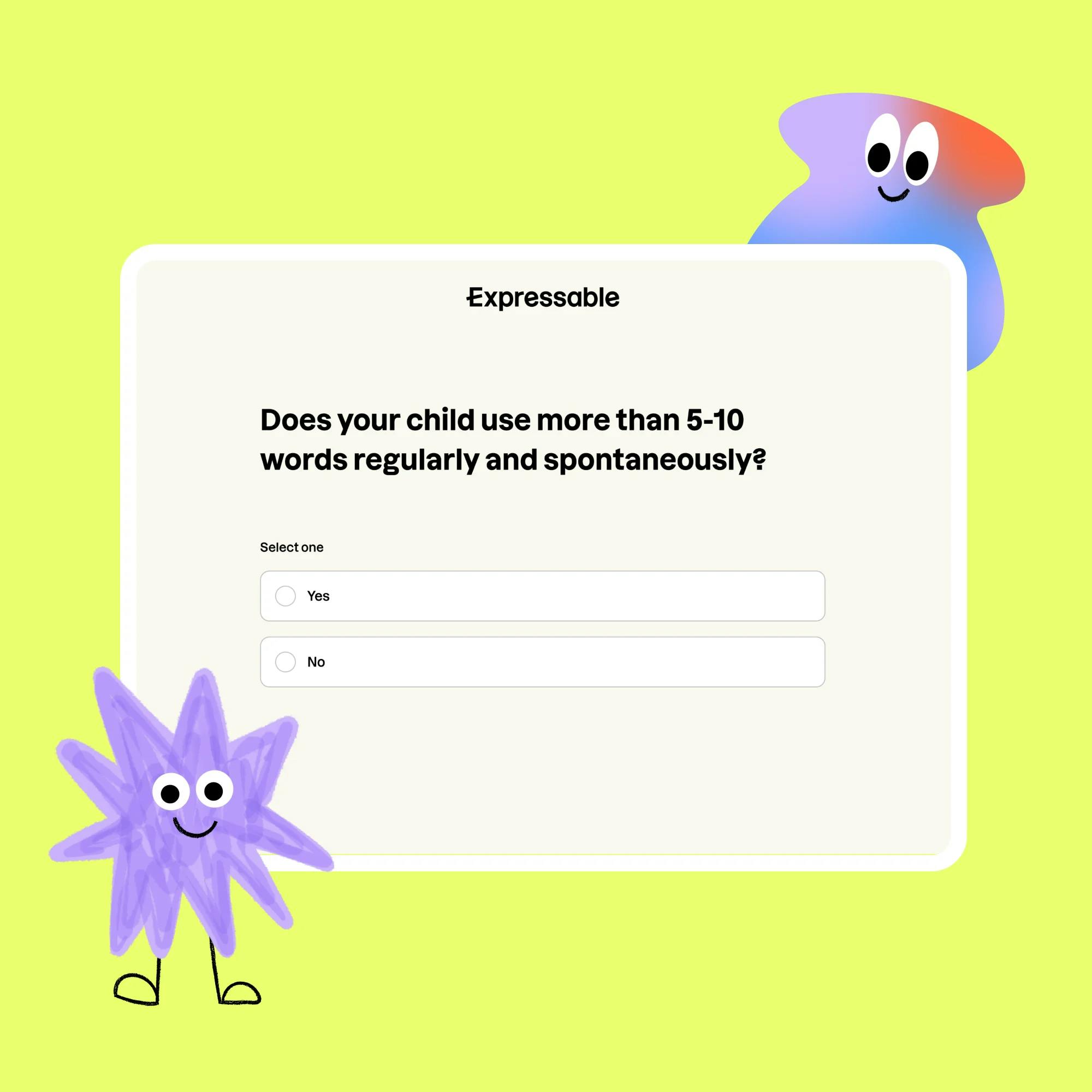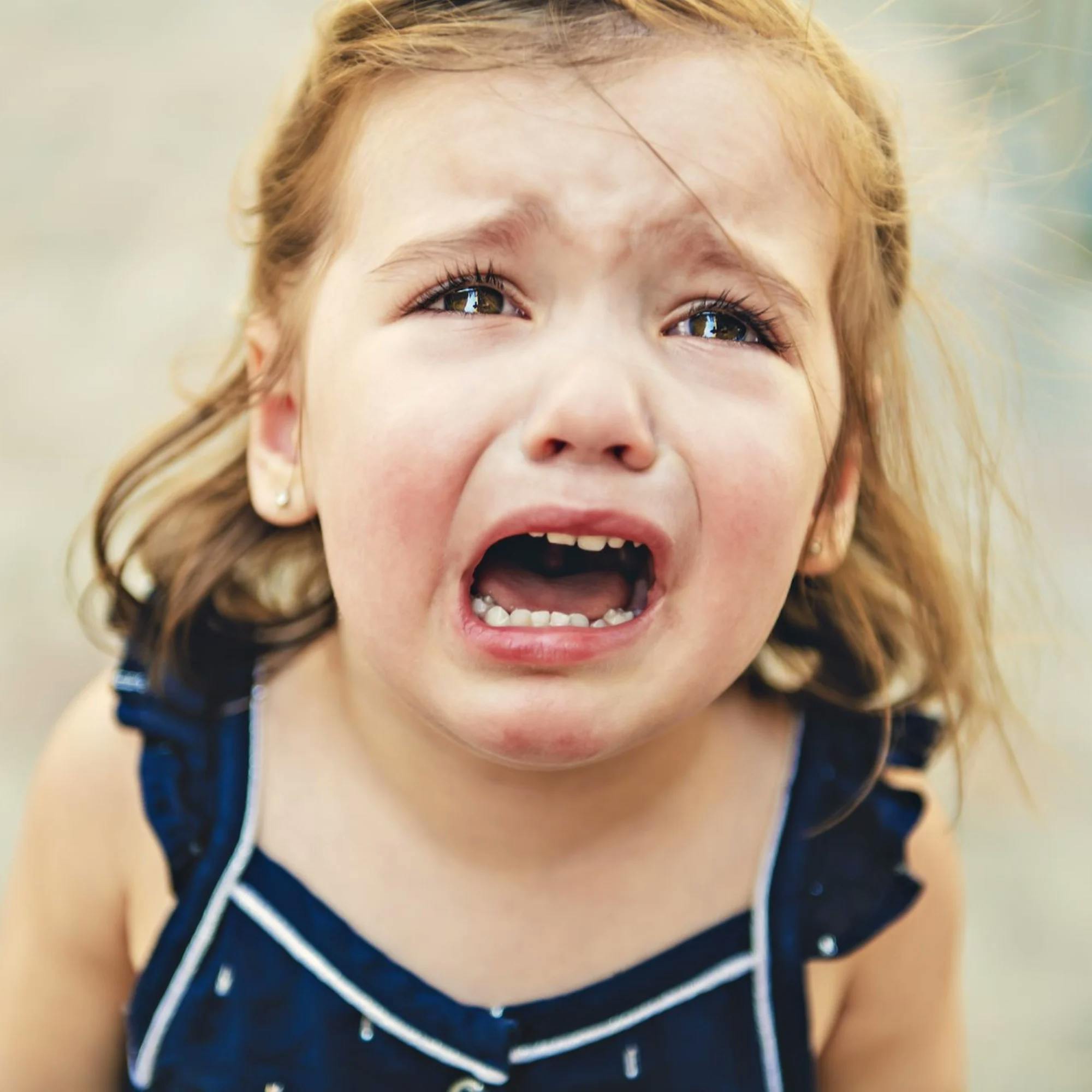At Expressable, we often hear questions like, “What is normal speech for a 2-year-old?” or “How many words should a 2-year-old say?” These are common and important concerns, especially if your toddler is still learning to express themselves.
As speech-language pathologists, we can tell you that year two is a time of huge growth in speech and language! Your child may go from saying a few words to speaking in short phrases, asking simple questions, and joining back-and-forth conversations. But every child develops differently, and it’s not unusual for parents to wonder if what they see in their toddler is "normal."
In this article, we cover six key speech and language milestones for 2-year-olds. We talk about what your child’s speech should sound like, and explain when it might be time to seek extra support. Let’s dive in.
Is your child on track?
Take our free screener to learn more about your child's development and whether a speech evaluation is recommended.
 Screener for children
Screener for childrenWhat should a 2-year-old be able to say?
By age 2, most toddlers can say around 50 words and use them to communicate wants, needs, and ideas. You might hear your child label familiar objects, say “more” during snack time, or ask simple questions like “What’s that?” As their speech grows, 2-year-olds often begin pairing two words together to form early phrases like “want juice” or “go outside.”
Along with more words, you’ll likely notice your child starting to answer questions and join in short conversations. Their speech may not be perfectly clear yet, as speech clarity continues to develop over time.
Still, it’s helpful to know what a 2-year-old’s speech should sound like so you can monitor progress. If your child isn’t saying many words, combining words, or answering simple questions, it may be a sign to seek speech therapy. Keep reading to learn more about speech milestones for 2-year-olds and when to consider talking with a speech therapist.
6 communication milestones for 2-year-olds
1 Use a vocabulary of 50 words
By age 2, most toddlers are using around 50 words. These may include familiar people (“Mama”), favorite objects (“ball”), or basic needs (“more” or “up”).
At this age, children are also learning to say new words every week. These words don’t have to be perfectly clear. What matters most is that your child uses these words on their own, not just when prompted.
This growing vocabulary shows that your toddler’s speech and language are developing as expected. More words give them more ways to express themselves!

2 Answer simple “what” and “where” questions
Normal speech for a 2-year-old includes the ability to answer simple questions like “Where’s your toy?” or “What’s that?” Around this age, toddlers begin to understand and respond to short “wh-” questions.
This milestone shows growing receptive language, which is your child’s ability to understand what others are saying. It’s also the start of more meaningful conversations that help you connect and learn about your child’s thoughts and personality.

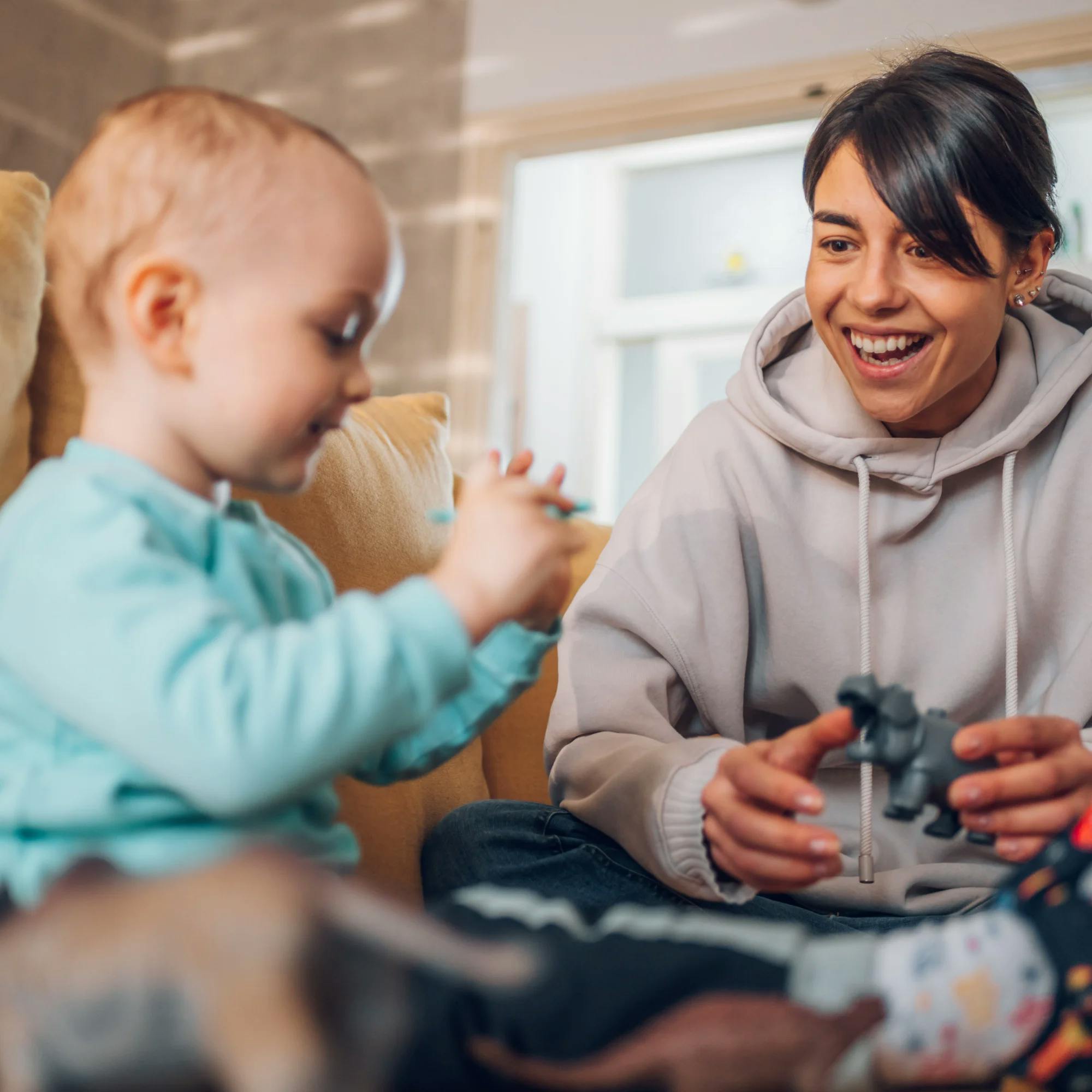
3 Ask basic questions to start a conversation
A 2-year-old may also begin to ask questions, like “Where Mommy?” or “What’s that?” This shows they’re learning how to start a conversation and engage with others, which is a big communication leap!
Even if their sentence structure isn’t perfect (which is expected), asking questions is a sign your child is becoming a more active communicator.
4 Combine two words into simple phrases
Another typical speech milestone for 2-year-olds is combining words. You might hear your toddler say things like “want juice,” “go park,” or “I fall.”
These early phrases might be short or missing grammar pieces, but they still show that your child is learning how to build longer ideas. By age 3, most kids start using three-word phrases. For now, keep encouraging and modeling simple phrases during your daily routines.
5 Take part in back-and-forth conversation
What should a 2-year-old’s speech sound like during playtime or story time? Around this age, toddlers begin to participate in short conversations. This means they’re not just responding once, but going back and forth with you about a shared topic.
These little exchanges are the foundation for future conversation skills. They help build your child’s confidence and attention span, too.

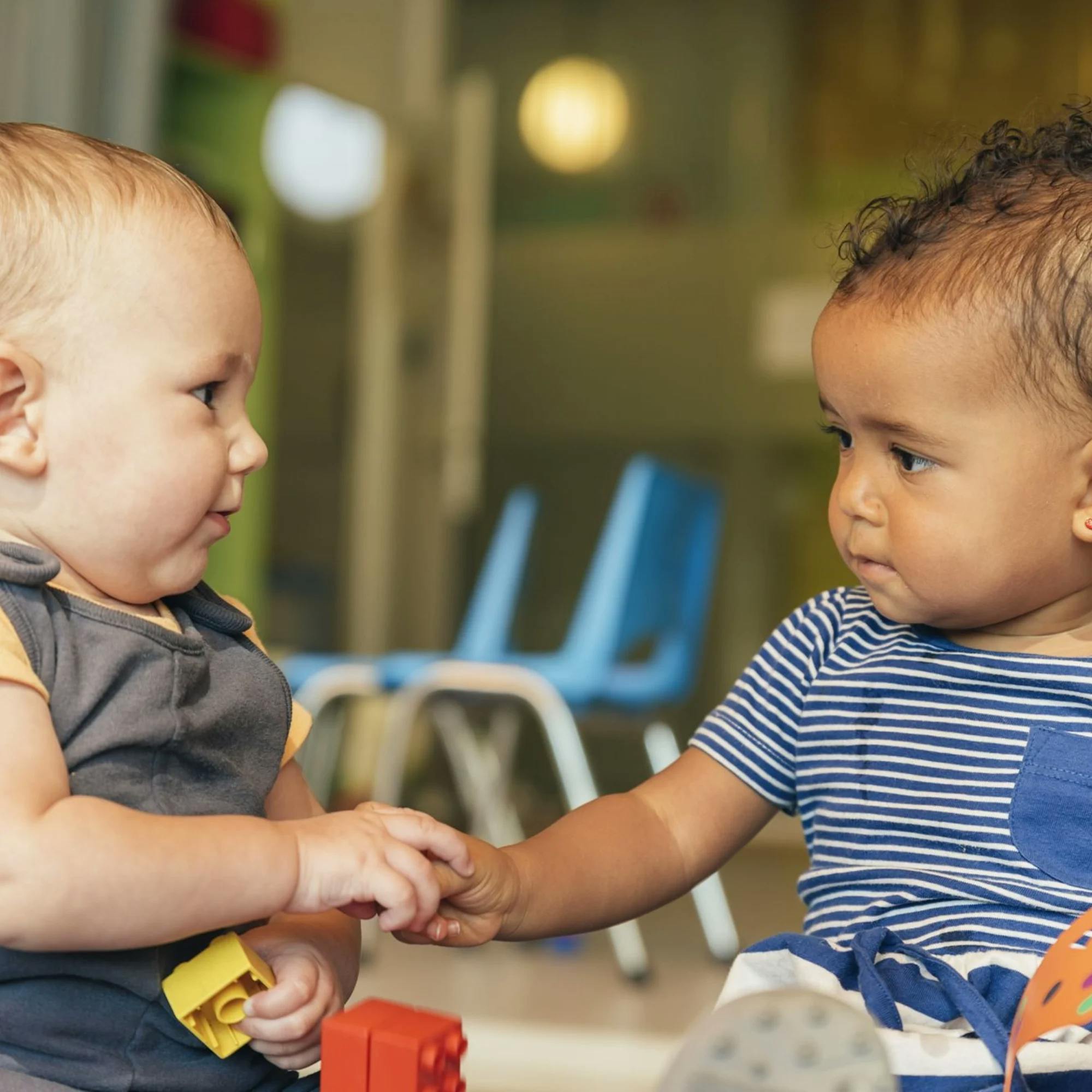
6 Speak more clearly with consonant sounds
You may wonder if it's normal for your toddler to not speak clearly. It's true that some speech sound errors are typical at this age. But you should start hearing clearer speech from your 2-year-old. For example, if they once said “Da” for “Daddy,” you may now hear something closer to the full word.
Most 2-year-olds can say sounds like /b/, /m/, /p/, /h/, /w/, /d/, and /n/ by their third birthday. If your child’s speech is very difficult to understand or doesn’t seem to be improving, it’s worth checking in with a speech-language pathologist.
Find the right speech therapist for your child
We'll match you with a licensed speech therapist who's experienced in your child's needs and available when you are.
 Get started
Get startedWhat if my 2-year-old isn’t meeting these milestones?
Most 2-year-olds should be saying around 50 words, combining words into short phrases, and starting to ask and answer questions. If your child isn’t showing some or all of these speech and language milestones, it may be a sign of a speech delay.
Early speech and language skills build on each other. That means if your child is stuck on one skill, like not combining words or not responding to questions, it can slow down other areas of development, too.
Sometimes a delay is just a temporary delay. But in other cases, it may be linked to something more, like a speech disorder or even signs of autism. That’s why early intervention matters. The sooner your child gets support, the easier it is to catch up.
What is speech therapy like for a 2-year-old?
Speech therapy for a toddler starts with an evaluation. The speech therapist will assess your child’s current strengths and weaknesses in communication. They will also ask you for information about how your child communicates.
From there, the speech therapist will decide if therapy is needed, as well as the frequency of sessions and which goals will be targeted in therapy. The speech therapist will likely structure sessions around games, toys, and other fun activities. Toddlers respond best to play activities, which helps them stay motivated. Play also helps them focus and absorb more of what they’re learning.
Inside the session: Watch a toddler having fun with online speech therapy!
Watch hereStay in close touch with the speech therapist in order to track your child’s progress. Your speech therapist should explain what you can practice at home to help your child master their new skills. The more your child practices speech and language at home, the faster progress they’ll make!
Your child’s second year is full of new developments. Notice and celebrate all the ways that they’re learning to communicate, no matter what they’re able to do. Remember, many 2-year-olds benefit from speech therapy to help them reach their full communication potential. Get ready to watch all the amazing ways your child is going to grow!

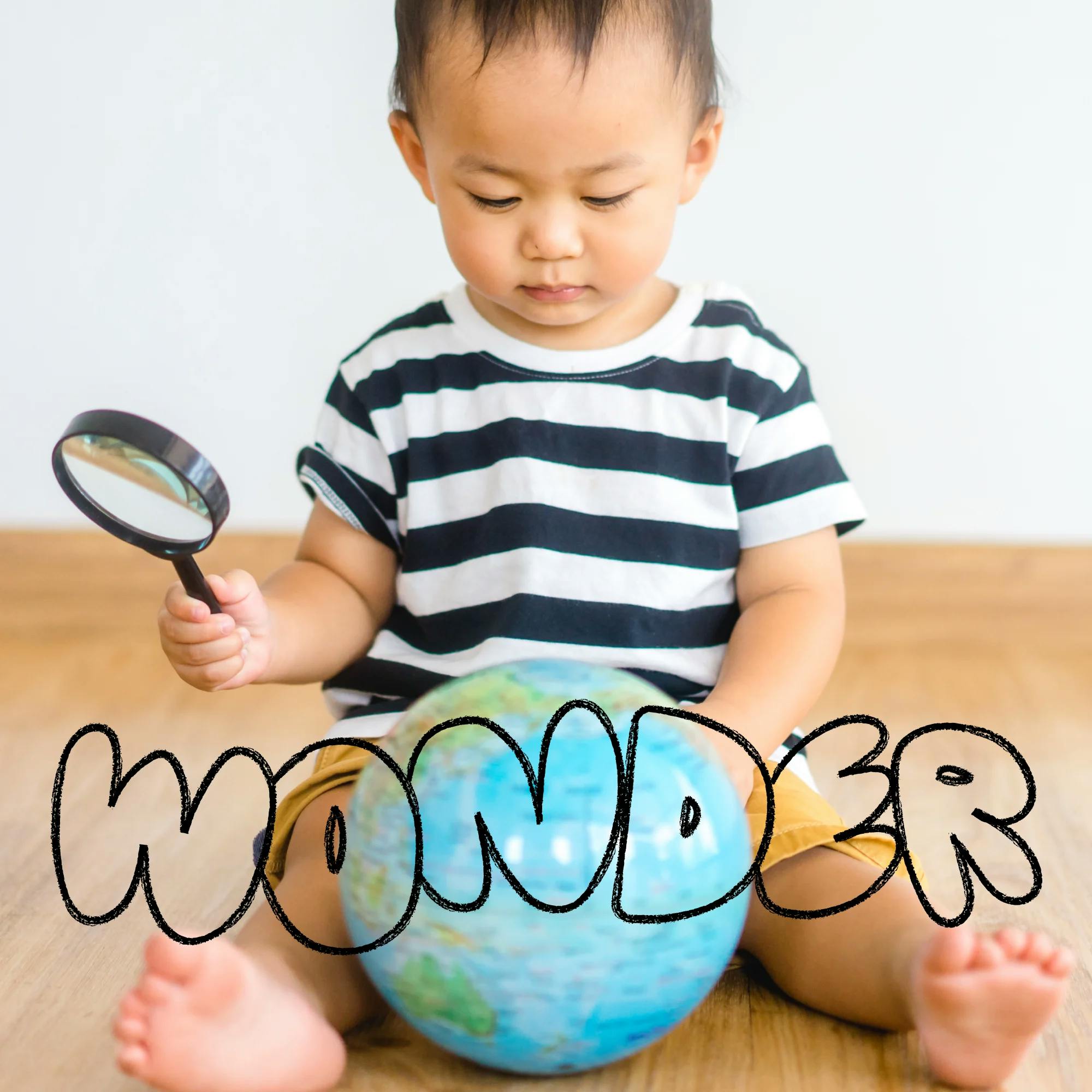
Curious or concerned? Take the next step
Whether you’re wondering how many words a 2-year-old should have or how clear their speech should be, you're already doing something powerful by being informed and engaged.
Let Expressable help guide your next steps:
Take our free communication screener
Learn more about language milestones by age
Get matched with a licensed speech therapist at Expressable
If you're worried about a speech delay or simply want peace of mind, support is just a click away.
FAQs about 2-year-old speech and language development
What is normal speech for a 2-year-old?
By age 2, most toddlers can combine two words into simple phrases like “more juice.” They also begin to ask and answer basic questions. Their speech may not be perfectly clear yet, but that’s normal at this stage.
How many words should a 2-year-old say?
Typically, 2-year-olds should have at least 50 spoken words and be adding new ones regularly. If your child has fewer words or mostly relies on gestures like pointing, it may be a sign to check in with a speech therapist.
What should a 2-year-old's speech sound like?
At age 2, most children’s speech isn’t fully clear. You might still hear simplified versions of words, like “wa-wa” for water. What matters most is that they’re trying to communicate, and you hear new sounds and words forming over time.
When should I be concerned about signs of autism in a 2-year-old?
Speech delays alone don’t always mean autism. But if your child also shows differences in social interaction, play, or eye contact, it’s worth talking to your pediatrician or a speech-language pathologist. Early support can make a big difference. You can learn more about signs of autism in toddlers in this article.
How Expressable Can Help
Concerned your child isn't reaching age-expected milestones? Looking for communication support from a professional? Expressable is a national online speech therapy practice serving children and adults. We treat all major areas of communication and feeding, offer flexible hours including evenings and weekends, and accept most major health insurance plans. We’re proud to have earned more than 3,000 5-star reviews from our clients (4.9/5 average).
Our therapy model is centered on parent and caregiver involvement. Research proves that empowering caregivers to participate in their loved one’s therapy leads to better outcomes. That’s why we combine live, 1-on-1 speech therapy with personalized education and home practice activities for faster progress.
Communication is more than words. It’s how we share how we feel and show who we are. We’re here to help you or your child do just that.

 Abby Barnes, M.S., CCC-SLP
Abby Barnes, M.S., CCC-SLP